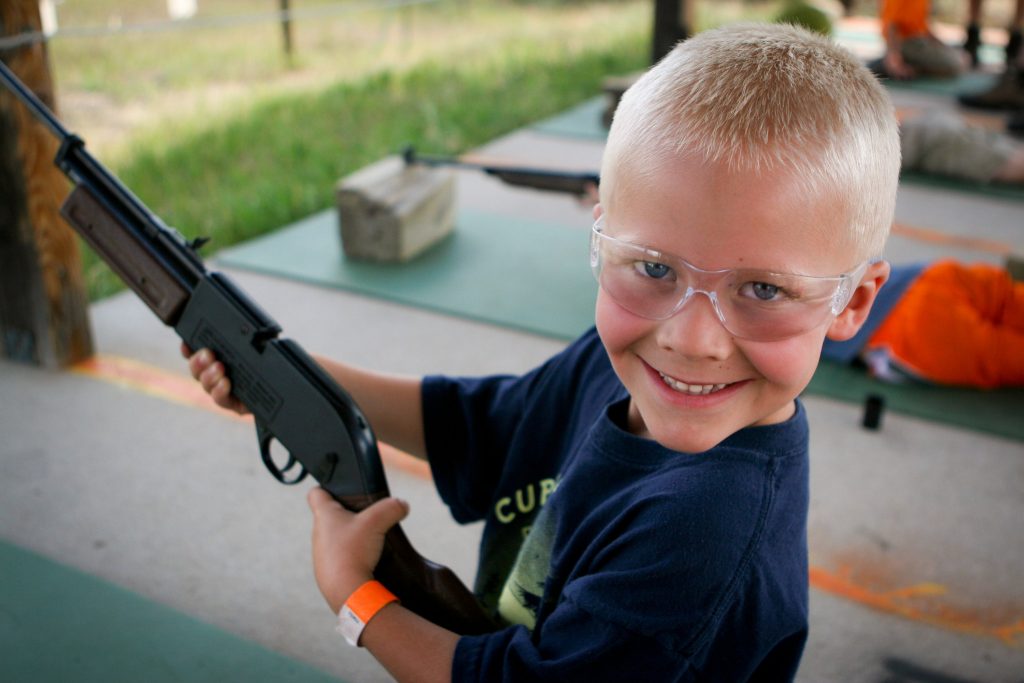Know how to use the gun safely.
Before handling a gun, learn how it operates. Know its basic parts, how to safely open and close the action and remove any ammunition from the gun or magazine. Remember, a gun’s mechanical safety device is never foolproof. Nothing can ever replace safe gun handling.

Know your target and what is beyond.
Be absolutely sure you have identified your target beyond any doubt. Equally important, be aware of the area beyond your target. This means observing your prospective area of fire before you shoot. Never fire in a direction in which there are people or any other potential for mishap. Think first. Shoot second. Be careful of rocks and water; they can cause the bullet to ricochet, sending it in an unexpected direction. Also, never shoot toward the top of a hill.
Keep a firearm’s muzzle pointed in a safe direction.
It is your responsibility to always control the muzzle of your firearm and ensure it points in a safe direction. Follow this rule at ALL times, even if the firearm is unloaded or in a protective case. If you remember and obey this rule, you will not have to worry about hurting any other person or damaging property.
Be sure the gun is safe to operate.
Just like other tools, guns need regular maintenance to remain operable. Regular cleaning and proper storage are a part of the gun’s general upkeep. If there is any question concerning a gun’s ability to function, a knowledgeable gunsmith should look at it.
Use only the correct ammunition for your gun.
Only BBs, pellets, cartridges or shells designed for a particular gun can be fired safely in that gun. Most guns have the ammunition type stamped on the barrel. Ammunition can be identified by information printed on the box and sometimes stamped on the cartridge. Do not shoot the gun unless you know you have the proper ammunition.
Wear eye and ear protection as appropriate.
Guns are loud and the noise can cause hearing damage. They can also emit debris and hot gasses that could cause eye injury. For these reasons, shooting glasses and hearing protection should be worn by shooters and spectators.
Never use alcohol, over-the-counter drugs or prescription drugs before or while shooting.
Alcohol, as well as any other substance likely to impair normal mental or physical bodily functions, must not be used before or while handling or shooting guns.
Store guns so they are not accessible to unauthorized persons.
Many factors must be considered when deciding where and how to store guns. A person’s particular situation will be a major part of the consideration. Dozens of gun storage devices, as well as locking devices that attach directly to the gun, are available. However, mechanical locking devices, like the mechanical safeties built into guns, can fail and should not be used as a substitute for safe gun handling and the observance of all gun-safety rules.
Additional Safety Precautions
Be aware that certain types of guns and many shooting activities require additional safety precautions.

